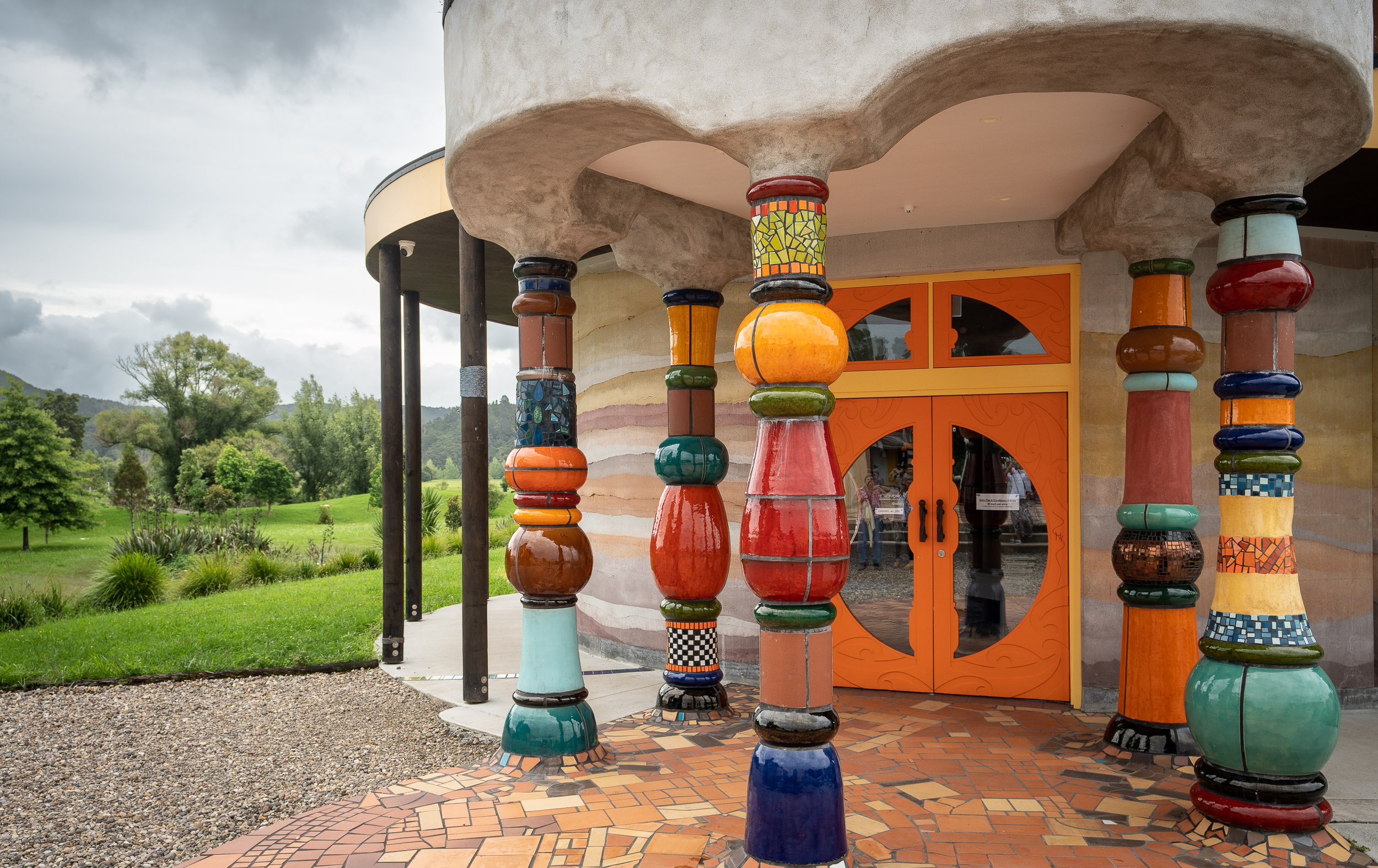Hundertwasser Legacy Brings People Together
Te Hononga o nga whakaaro, hei tuapapa mo te mahi tahi, tutuki noa to tatou kaupapa. A melding of ideas as a firm foundation for combined effort and realisation of our collective vision.
In Te Reo Māori the word hononga refers to the concepts of union, connection, relationship and bond. It’s easy to see why this word was chosen to name the vibrant community centre in Kawakawa, which was officially opened by the Prime Minister in October 2020.
Building on an old riverbed with soft ground, the brief called for rammed earth walls. International company SIREWall provided training and brought their Structural Insulated Rammed Earth wall system to NZ. Walls are built with 30+MPa strength using locally sourced materials. A natural timber, Vulcan cladding, was also used to offset the rammed earth wall elements. The Vulcan is in a WB10 145x20 profile, which allows for the curved facade.
Te Hononga Hundertwasser Memorial Park is inspired by the Austrian Jewish artist, Friedensreich Hundertwasser, who was a well known local identity.
Hundertwasser was born in Vienna in 1928 to a Jewish mother and Catholic father. His father died in 1929. Hundertwasser and his mother were forced to move to the home of his aunt and grandmother on Obere Donaustrasse, following the annexation of Austria to Nazi Germany in 1938. In 1943, sixty-nine of his Jewish relatives were deported and killed, including his aunt and grandmother.
Hundertwasser came to New Zealand in the 1970s, purchased a 372ha property in the Bay of Islands and pursued an environmentally conscious lifestyle. He lived off the land and felt a profound connection with the region, spending his last few years in Kawakawa. He became a New Zealand citizen in 1988 and died in 1999. Hundertwasser designed and built the toilet block in Kawakawa which quickly became a tourist attraction. It is his only building in the southern hemisphere. At the opening of the famed toilets, Hundertwasser was gifted a tokotoko (walking stick) by Ngāti Hine elder Kevin Prime.
SIREWALL was used by a team of local Iwi to connect with the nature around them. The hills and valleys of the SIREWALL layering are a direct representation of specific views in the local landscape, including ocean inlets and clouds in the background.
Te Hononga Hundertwasser Memorial Park is built on land gifted by Maihi Parone Kawiti and celebrates Hundertwasser’s friendship with the local iwi and community. It includes a library and community centre, art gallery, town square, showers and toilets for freedom campers as well as an interpretive centre.
Architectural designer, Pip Bolton, who took the lead in the project design was guided by the concept of ‘Te Hononga’. Envisaging the building as a symbolic 3D canvas, the design features two interlocking heart shaped buildings, one crafted from rammed earth, and the other from timber. The hearts symbolise “the joining together of the Kawakawa community and Hundertwasser, Māori and Pakeha, visitors and residents, our past and future, east and west, man and the environment.” Bolton’s design honoured Hundertwasser’s aversion to straight lines by using only curved walls.
The Austrian artist was a pioneer in the architectural models of the 1970s which sought to improve the quality of life for humans and the greening of cities. He railed against the destruction of natural heritage and spoke out against the dangers of pollution. Bolton incorporated Hundertwasser’s environmental ideologies by using natural materials with a low environmental impact such as the rammed earth wall, a significant feature of the building and the first commercial building in Aotearoa New Zealand using this method.
The Hundertwasser Memorial Park Trust partnered with Ngati Hine to bring together a talented team of artists; Maude Cook Davies, Theresa Reihana, Te Warihi Hetaraka, Te Hemo Ata Henare, Lorraine King and Pat George who each added their artistic vision to the building. A cultural narrative is woven throughout the building incorporating various elements; Pukepukerau, window treatments, interior and exterior art elements, cladding, carpet, colour pallete. Ngati Hine stories and whakapapa were also included, as well as audio displays of local relationships with Hundertwasser and his philosophies for art and architecture, ecology and conservation. In this way, the kaupapa (principles) of Hundertwasser and the iwi have been woven together. The project was envisaged as a vehicle to bring the community together, to value cultures and friendship and to reflect the values of the tangata whenua (people of the land); kaitiakitanga (guardianship) and manaakitanga (hospitality).
In 2021 Pip Bolton won the 2021 ADNZ Resene Commercial Interiors Architectural Design Award Sponsored by GIB for her design. In May 2022 Te Hononga won Gold in the Tourism category and the Innovation Award at the national Commercial Project Awards. Imbued in Hundertwasser’s body of work was a deep desire for beauty. He believed in the notion that ‘Beauty is a panacea”. No doubt he would be proud of the achievement of all those who contributed to the building of Te Hononga Hundertwasser Memorial Park, which brought the diverse peoples together, combining talents to produce a place of beauty and connection - a fitting homage to this Austrian Jewish artist and environmentalist.
Read more from the architectural designer Pip Bolton.
Read more about Hundertwasser.





